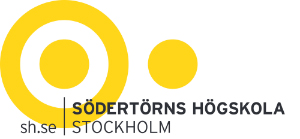Previous studies of interpretation in the asylum process have mainly focused on risks of using interpreters who lack training and professional competence. However, interpreting is such a complex practice that many things can go wrong even though the interpreter is professional. In the article "Managing a discourse of reporting – the complex composing of an asylum narrative", we investigate on a micro level how an interpreter-mediated, Russian-Swedish interview sequence of three and a half minutes is converted into a sentence in Swedish in the interview minutes.
During the asylum interview, the asylum report is formed, which then forms the basis for the decision to be made by the Swedish Migration Agency - residence permit or rejection. In the article "The asylum interview as a genre – narration, dilemmas and symbolism" (pp. 172-194) the narration during the asylum interview is discussed against the background of both philosophical and essayistic literature as well as research on rituals.
Asylum interviews consist largely of metacommunication. This could, for example, involve the participants discussing the framework for the interview or trying to clear up linguistic misunderstandings. At the same time that metacommunication takes place, the participants position each other and themselves, meaning that they attribute specific, ever-shifting roles to each other and to themselves. This is something that we investigate in the article "'Do I have to say exactly word by word?' (Re)producing and negotiating asymmetrical relations in asylum interviews".
"From interpreted interaction to monolingual text - about the emergence of an asylum story"
In a different article, we start from an unintelligible sentence in the minutes of an asylum interview - a sentence that the asylum seeker and his public representative wanted to delete from the minutes. By analyzing in detail the audio-recorded interaction, we expose the linguistic and pragmatic circumstances that led to the sentence ending up in the minutes.
In the literature review "The interpretation function in the asylum process", commisioned by the Delegation for Migration Studies (Delmi), we have collected results from national and international research on interpretation in the asylum process.
"Asylum interviews should always be recorded": Big difference in the competence of interpreters during asylum interviews"
Interpretation in the asylum process is a controversial topic. In two articles, published in the journal Artikel 14, people with own experiences of asylum interviews speak - above all asylum seekers and interpreters.
Research is often emphasized as a central component of a democratic and open society. But researching something as sensitive as asylum interviews is difficult in many ways – not least when it comes to data collection. In the article "Negotiating access with public authorities in research on asylum", our own research experiences are used as a starting point to discusses openness, research ethics and the relationship between authorities and externally funded research.

